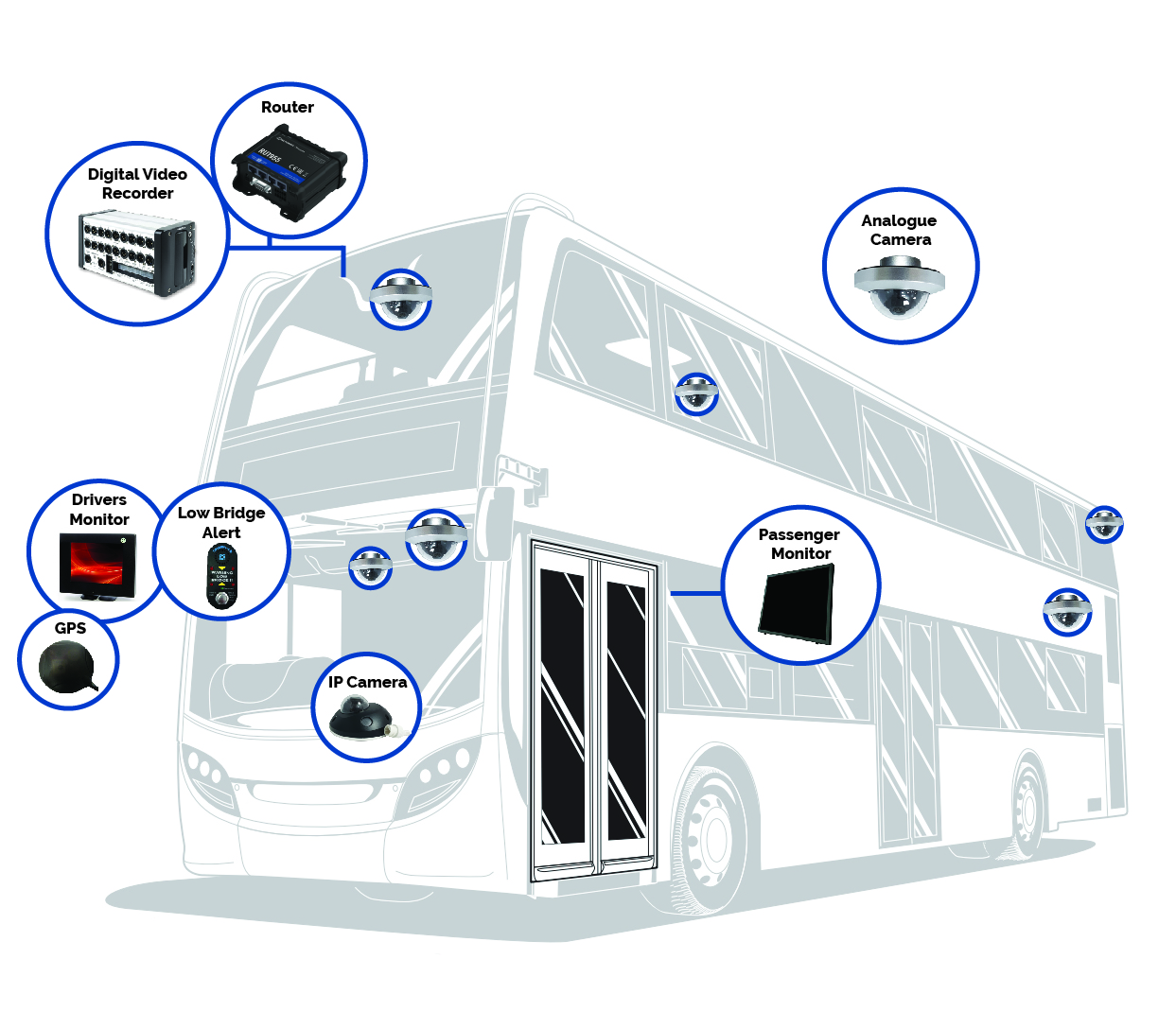Coach and Bus CCTV 101 guide – Everything You Need To Consider
In today's world, security is more important than ever, and businesses need to ensure they're doing everything they can to protect their passengers and employees. One essential tool for achieving this is closed-circuit television (CCTV) systems. In this guide, we'll discuss everything you need to consider when installing CCTV on your buses and coaches.

1. Determine your specific needs
The first step in choosing the right CCTV system for your bus or coach is to determine your specific needs. Consider the size of your vehicles, the number of cameras you need, and the type of footage you want to capture. Do you need to monitor the inside of the vehicle, the outside, or both? Do you want to record audio as well as video? These are all important considerations when choosing a CCTV system.
2. Choose the right cameras
Once you've determined your needs, you need to choose the right cameras. For buses and coaches, you'll likely want to choose cameras that can withstand the vibration and movement of the vehicle. You'll also want cameras that can capture high-quality footage in low light conditions. Dome cameras are a popular choice for buses and coaches, as they can capture a wide-angle view and can be mounted discreetly.y.
Surveillance cameras can also help to deter criminal activity on buses and coaches, as well as provide evidence in the event of a crime. This can help to improve the overall safety and security of passengers and give them peace of mind when travelling.
3. Decide on a recording system
The next consideration is the recording system. You have two main options: digital video recorders (DVRs) or network video recorders (NVRs). DVRs are the traditional choice using analogue or AHD Cameras and record footage directly onto a hard drive. NVRs, on the other hand, utilise IP Cameras while storing footage on the internal HDD or SSD. Remote access is available with both systems.
4. Consider audio recording
In addition to video recording, you may want to consider audio recording. This can be especially important if you're trying to capture evidence of an incident or altercation. However, you need to be aware of the legal implications of recording audio, as it is not legal in all situations.
5. Think about storage and retrieval
Once you've chosen your recording system, you need to consider storage and retrieval. How long do you need to store footage? What happens when your storage is full? How easy is it to retrieve footage if you need it? These are all important questions to consider when choosing a CCTV system.
6. Consider privacy concerns
While CCTV can be a valuable tool for improving security, you also need to be aware of privacy concerns. Make sure you have clear signage indicating that CCTV is in use, and make sure you're following all applicable laws and regulations regarding the use of CCTV.
7. Train your staff
Finally, it's important to train your staff on the use of the CCTV system. Make sure they know how to access footage if needed, and make sure they understand the importance of respecting passengers' privacy. Additionally, make sure your staff knows how to properly maintain and care for the CCTV system.
In conclusion, CCTV systems are an essential tool for improving security on buses and coaches. By following these guidelines, you can choose the right system for your specific needs, and ensure that your passengers and employees are safe and secure. Remember to consider your specific needs, choose the right cameras and recording system, think about audio recording, storage and retrieval, privacy concerns, and staff training. By doing so, you can have peace of mind knowing that you're doing everything you can to protect your passengers and your business.
If you own or operate a bus or coach fleet and would like to ensure your systems are up-to-date with the latest technology, then get in touch with our friendly team today, for a free no-obligation quote.

